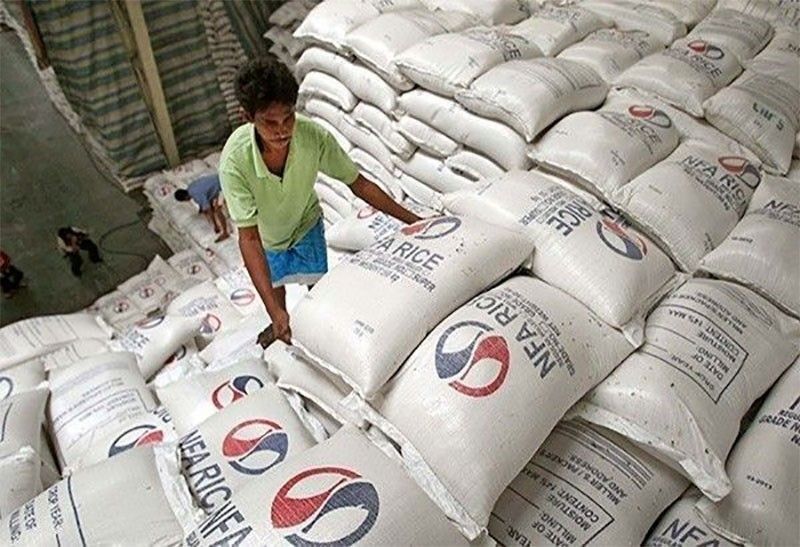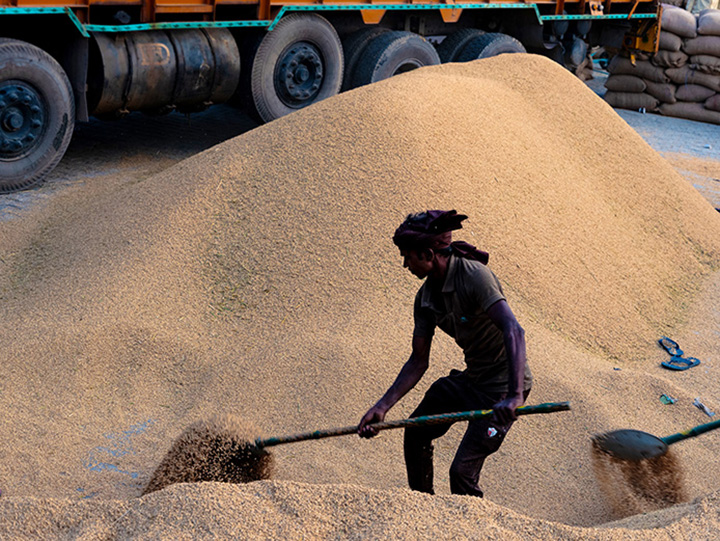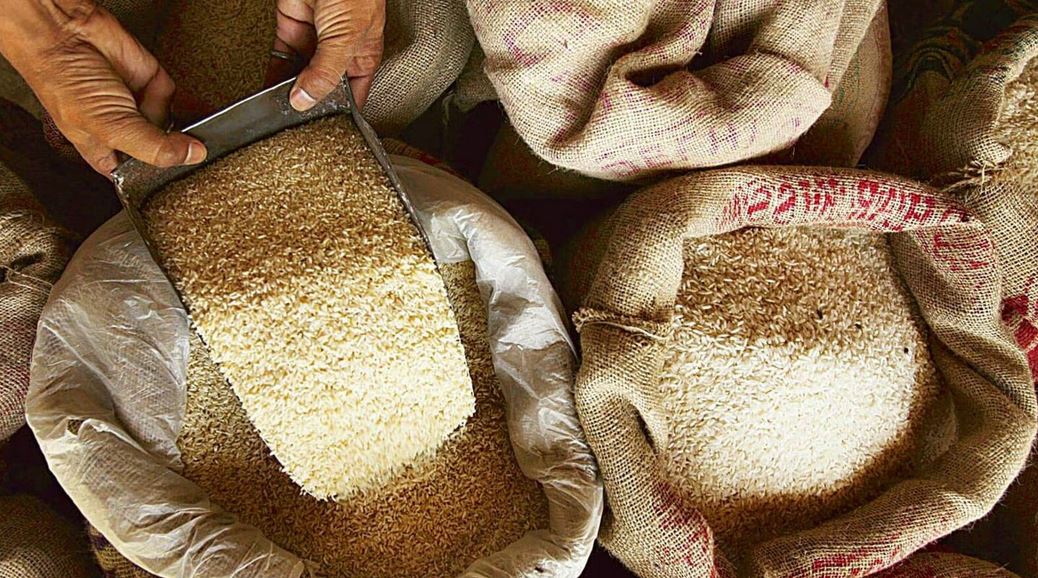Tags
‘NFA lost P112 million after rice sale to traders’

Jayson Cainglet, Samahang Industriya ng Agrikultura executive director, noted that while corruption at the NFA is an open secret, officials have become more daring in their illegal activities.
MANILA, Philippines — The National Food Authority (NFA) has incurred losses of at least P112 million after the sale of 150,000 bags of rice at only P25 per kilo to some traders, according to a farmers’ group.
Jayson Cainglet, Samahang Industriya ng Agrikultura executive director, noted that while corruption at the NFA is an open secret, officials have become more daring in their illegal activities.
“What happened was very glaring. Before, the anomalies we heard at the NFA underwent bidding or auction. In this recent incident, there was no bidding. Traders were chosen, only two (traders) benefited. That was a red flag already,” Cainglet pointed out.
He noted that the NFA bought palay from local farmers at P23 per kilo and sold some of its stocks to the traders at only P25 per kilo.
“It was OK if the rice was sold to the agencies of government, like the Department of Social Welfare and Development and Kadiwa, as it will benefit the ordinary people. But it was sold to private traders,” Cainglet said.
Noting that the NFA spends between P13 and P14 per kilo for the milling of palay, Cainglet explained that this meant the agency “incurred losses of P12 to P13 per kilo.”
“If it involved 150,000 bags (of rice), then it means P112 million in losses to the NFA,” he said.
He added that the NFA could have, at the least, sold the rice at P40 per kilo.
“We expect that with the investigation of the DA (Department of Agriculture), the Office of the Ombudsman, the House of Representatives and the Senate, those liable will be made accountable,” Cainglet said.
The NFA Council has appointed Piolito Santos, NFA assistant administrator for finance and administration, as officer-in-charge amid the six-month preventive suspension of administrator Roderico Bioco and 138 other officials and employees amid the questionable sale.
Santos said he would prioritize the resumption of operations of NFA warehouses, noting that the “peak harvest season has already started.”
He said the NFA has a total budget of P17.2 billion for palay procurement.
Retail prices seen dropping by P4/kilo
Meanwhile, Cainglet said a P4-per-kilo drop in the retail prices of rice is to be expected amid the peak harvest season of palay, which runs until April.
He noted that the farmgate price of palay already dropped between P22 and P23 per kilo for fresh palay and between P26 and P28 per kilo for dry palay, from the previous P28 to P30 per kilo.
“We expect that the farmgate price of palay will further go down to P25 (per kilo),” Cainglet said in a message to The STAR.
A 36 percent spike in the retail price of rice was recorded on March 1, 2024 compared to the same period last year, according to data from the DA.
“The major causes of the spike in the retail price were logistics and cost to produce, not only for rice, but also for vegetables, livestock and chicken. There was an increase in the post production expenses of our farmers and those who transport agricultural products,” Cainglet said.
Based on price watch monitoring of the DA in Metro Manila markets, the retail price of local regular-milled rice went up by as high as P18 per kilo, or a 36 percent increase. On March 1, 2023 the prices for the staple ranged between P32 and P40 per kilo, compared to this year’s P50 per kilo.
On the other hand, the retail price of local well-milled rice increased by as much as P13 per kilo.
Prevailing prices, as of March 1, are between P45 to P58 per kilo – a 22 percent increase compared to last year’s P37 to P45 per kilo prices.
Data from the Bureau of Plant Industry data showed that the country’s rice imports skyrocketed by almost 85 percent year-on-year in the first two months of the year as importers delivered their commitment to bring in more stocks to ensure supply amid El Niño threats.
Total rice imports from January to February this year reached 728,254.49 metric tons, compared to the 394,553.664 MT recorded in the same period last year.
Broken down, about 424,650.8 MT of rice entered the country in January while the remaining 303,603.69 MT were imported in February, based on BPI data.
The bulk of the imports, about 390,997.22 MT, came from Vietnam. It was followed by Thailand at 195,921.38 MT and Pakistan at 96,627.5 MT.?The other sources were Myanmar (41,160 MT), Japan (1,815.37 MT), Cambodia (1,6210 MT), India (108 MT) and Italy (5.03 MT).
Agriculture Assistant Secretary and spokesperson Arnel de Mesa said the higher rice import arrivals were a result of the “engagement” between the government and importers to bring in more supply in preparation for El Niño.
The Philippine Rice Industry Stakeholders Movement earlier explained that rice imports this year have become “more economically favorable” as global rice prices have been on a “downward trend.” – Jasper Emmanuel Arcalas
https://www.philstar.com/headlines/2024/03/08/2338978/nfa-lost-p112-million-after-rice-sale-tradersPublished Date: March 7, 2024






